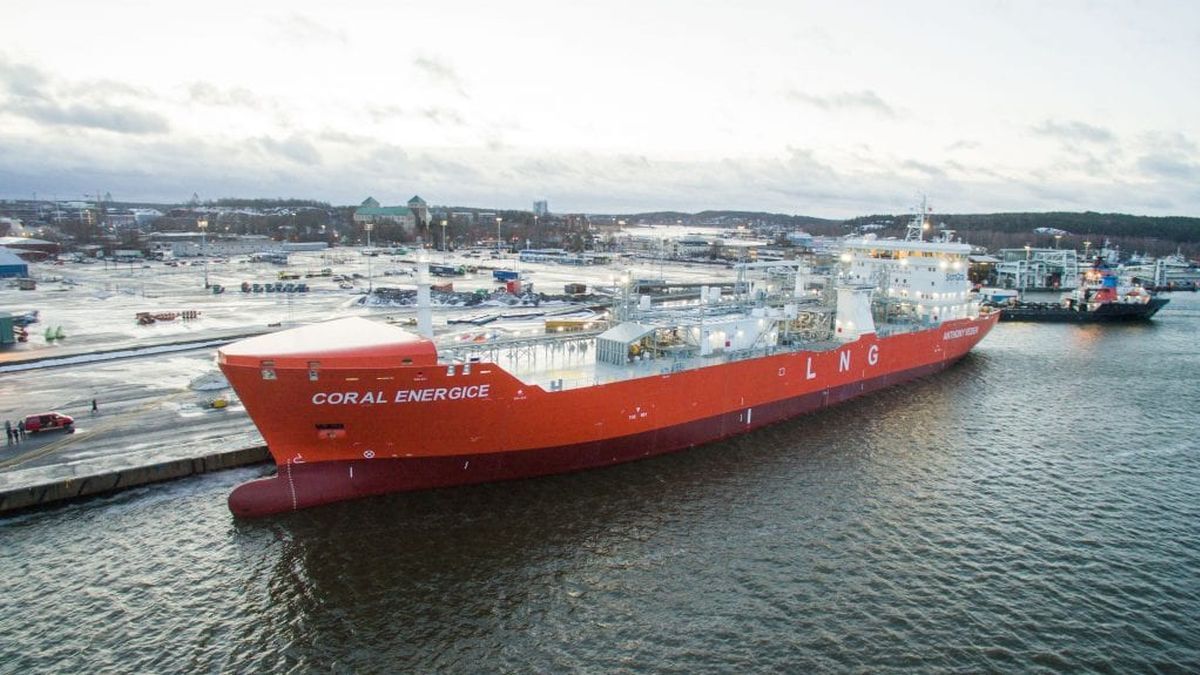A full transition to greener refrigerated containers (“reefers”) could reduce greenhouse gas emissions by up to 3.74 million tons of CO₂-equivalent per year, according to a new White Paper developed by the Kuehne Climate Center and GIZ, equivalent to the emissions generated by the production of 872,375 gasoline-powered passenger vehicles per year.
Natural refrigerants such as propane match or outperform traditional refrigerants in cooling performance while having significantly lower global warming potential. Eliminating PFAS, harmful “forever chemicals” that are highly persistent, from the supply chain is another key benefit, as many of today’s commonly used synthetic refrigerants gradually break down into these persistent pollutants. Natural refrigerants do not generate these substances, making them a safer and cleaner alternative. Furthermore, operational improvements throughout the cold chain, including better insulation and temperature control could reduce energy consumption by up to 20%.
Reefers play a critical role in transporting food, pharmaceuticals, and other sensitive goods worldwide. Despite comprising only 15% of the global container fleet, based on the latest International Maritime Organization information the ca. 2.5 million refrigerated containers currently in use have a disproportionately large climate footprint due to their energy-intensive cooling systems and the use of refrigerants such as R134a and R404A — which have global warming potentials thousands of times higher than CO₂ and significantly accelerate the climate crisis when released. In 2018 alone, leaks from these refrigerants led to 3.74 million tons of CO₂-equivalent emissions. Moreover, PFAS, persistent chemicals that contaminate soil and water, pose significant health risks such as hormonal imbalances, immune system effects, and certain cancers.
The technology to replace today´s refrigerants already exist. Natural refrigerants like propane and carbon dioxide, which are widely used in other sectors, can be effectively applied in refrigerated maritime containers. These alternatives offer strong cooling performance, significantly lower climate impact and eliminate PFAS contamination risks. While the transition to greener refrigerants like propane and carbon dioxide involves higher upfront costs and additional safety requirements, the White Paper concludes that the shift is both technically feasible and economically viable in the long term. However, barriers such as regulatory complexity, flammability standards, and the additional costs associated with introducing these substances into existing operations, such as infrastructure adjustments and technician training, represent manageable challenges to be addressed as part of the implementation process. The right policy support, financial incentives, and industry collaboration would be essential to accelerate the adoption and make the transition cost-effective at scale.
Momentum for change is growing. Global policies such as the EU F-Gas Regulation, which aims to phase down the use of fluorinated greenhouse gases, the Kigali Amendment to the Montreal Protocol, and the International Maritime Organization’s climate targets are driving the industry towards cleaner solutions. Regulation on PFAS is also anticipated. Companies that take proactive steps now can stay ahead of regulations, reduce emissions, and align with the growing market demand for sustainable supply chains.
“Bold action is not just necessary – it is possible,” says Otto Schacht, Advisor to the Kühne Foundation and former Head of Global Sea Logistics at Kuehne+Nagel. “This White Paper is both a call to action and a source of inspiration for stakeholders across the maritime ecosystem. The insights presented here showcase the immense potential of transitioning to climate- and environment-friendly reefer technologies.” The Greener Reefers White Paper was developed by the Kuehne Climate Center in cooperation with GIZ – “Deutsche Gesellschaft für Internationale Zusammenarbeit”. It was created as part of the Greener Reefers Transition Alliance, a collaborative initiative that aims to accelerate the shift towards sustainable refrigerated shipping by promoting natural refrigerants, energyefficient technologies, and systems-level innovation.
By bringing together industry leaders, innovators, and key stakeholders, the Alliance supports an enabling environment for greener reefer adoption, advancing the goals of the International Maritime Organization’s reduction strategy and the Paris Agreement.
Source: Kuehne Climate Center






